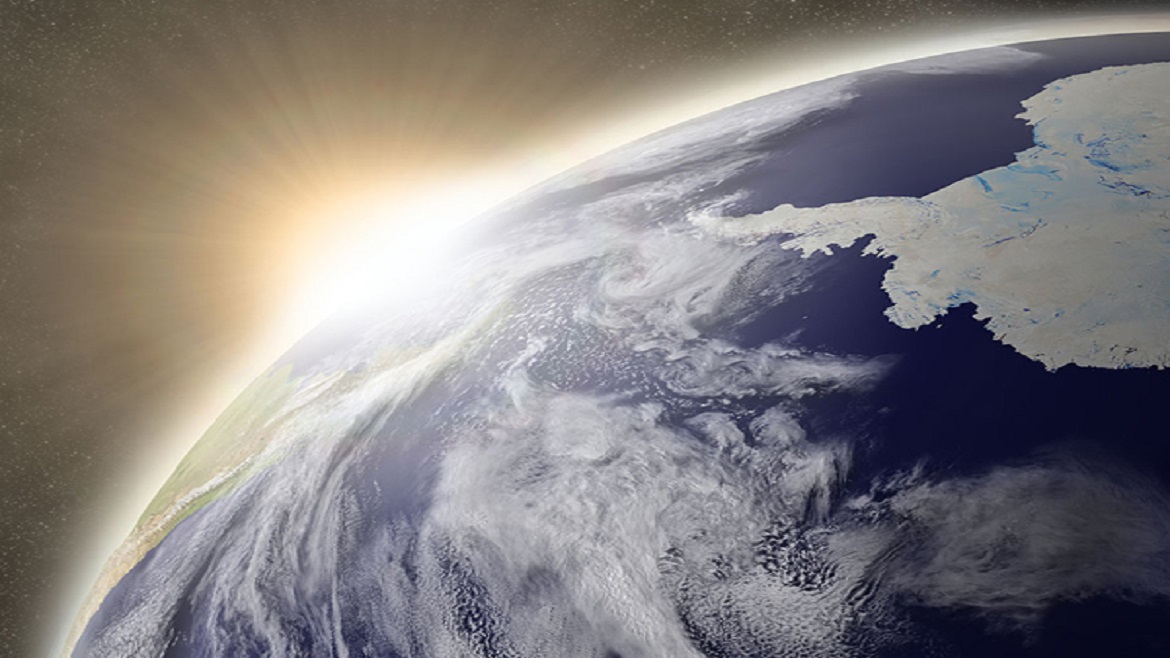More than half of the Arctic sea-ice has disappeared thanks to the highest temperature rises ever recorded anywhere, revealing the riches beneath the sea floor and opening up the Northwest passage to shipping, mining and oil drilling. The transformation of the Arctic environment poses unique and grave challenges for the climate and for society.
The sad thing for those of us who have spent time in the Arctic is that all this has taken place in plain sight. A lot of devastation has occurred because of unfettered economic and industrial activity in burning fossil fuels, and now we are seeking to extract more fossil fuels from below the Arctic sea bed and burn them up, continuing on the merry-go-round of mining oil, burning it up, warming the planet and causing further ice loss — ad infinitum.
Already, things are bleak. If you fly over the Tar Sands oil developments in Alberta you can easily imagine what will happen in the Arctic if the oil and gas extractive industries are given a free hand. Earth scientists and climate change specialists who have looked at the Arctic development problem concur that unfettered industrial access portends a dismal future for the Northern wilderness.
As the “Gold Rush” dawns upon the Arctic, the governments responsible for the region are fast asleep. National governments appear weak, behaving like silent witnesses – if not willing participants – to the plunder, rape and pillage of the Arctic.
Yet some of us are willing to believe that through proper action we still may be able to protect life, prevent destruction, and conserve the Arctic sea ice and its species before the region is dramatically and violently altered through mining development, deep sea oil drilling and increased shipping.
The great challenges ahead can be met through common sense, global consent and rules for sustainable development. A coordinated effort is required that brings together all stakeholders, harnessing scientific expertise, legal and regulatory frameworks, business perspectives as well as ethical and moral foundations.
To this end, the Environmental Parliament will be participating at The Economist's Arctic Summit, taking place in Oslo next week. We participate because we are keen on addressing climate change and sustainable development in the Arctic to avoid at all costs the model of development seen in the Gulf of Mexico, the Niger delta or the Amazon.
SUSTAINABLE ECONOMIC DEVELOPMENT has to be writ large on Arctic projects, “tattooed” on all developers, operators, and deck hands foreheads, not just written in dubious PR pieces, flashy adverts and colourful brochures. We demand proper accountability, protections, infrastructure development, and disaster prevention and remediation measures paid for by industry, not the taxpayer.
The Arctic is suffering vast damages and diminishing daily. Native species are disappearing along with native peoples. We need policy-makers to enforce environmental standards. We need foresight at an international level and government intervention to protect the Arctic until standards for safe development come into existence. Because as the lawgivers of yore said: “Salus populi suprema lex.”
Pano Kroko is speaking at The Arctic Summit on March 12th in Oslo.
The views and opinions expressed in this article are those of the authors and do not necessarily reflect the views of The Economist Intelligence Unit Limited (EIU) or any other member of The Economist Group. The Economist Group (including the EIU) cannot accept any responsibility or liability for reliance by any person on this article or any of the information, opinions or conclusions set out in the article.




